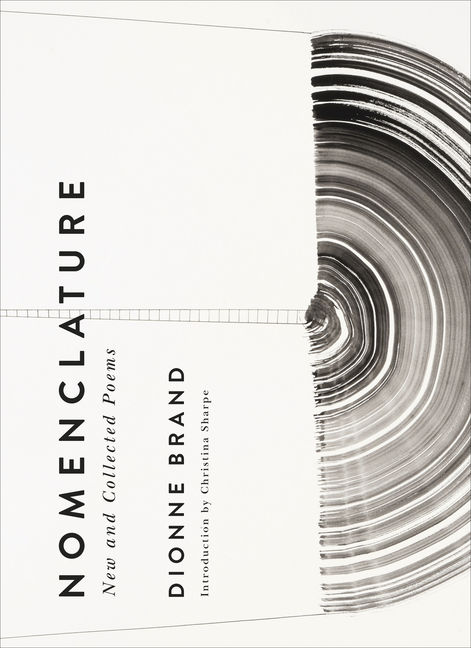
Nomenclature: New and Collected Poems
Nomenclature: New and Collected Poems collects eight volumes of Dionne Brand's poetry published between 1983 and 2010, as well as a new long poem, the titular Nomenclature for the time being.
Dionne Brand is the author of numerous volumes of fiction, poetry, and nonfiction. Her latest poetry collection, The Blue Clerk, also published by Duke University Press, was shortlisted for the Griffin Poetry Prize and won the Trillium Book Award. Her other poetry collections have won the Griffin Poetry Prize, the Governor General's Literary Award, the Trillium Book Award, and the Pat Lowther Memorial Award. Brand's novel, Theory, won the 2019 OCM Bocas Prize for Fiction and the Toronto Book Award, and What We All Long For won the Toronto Book Award. Her works of nonfiction include Bread Out of Stone and A Map to the Door of No Return: Notes to Belonging. From 2009 to 2012 Brand served as Toronto's Poet Laureate. In 2021 Brand was awarded a Windham-Campbell Prize in Fiction. She lives in Toronto.
Published in 2022 ┊ 672 pages ┊ Hardcover ┊ Language: English







